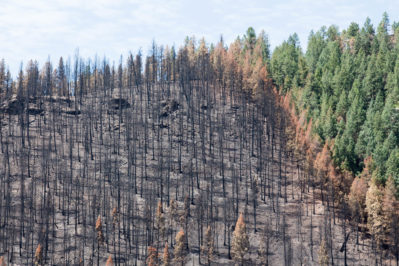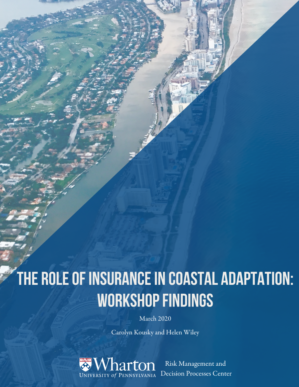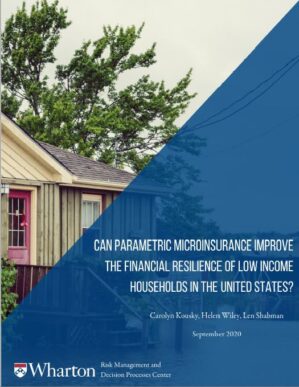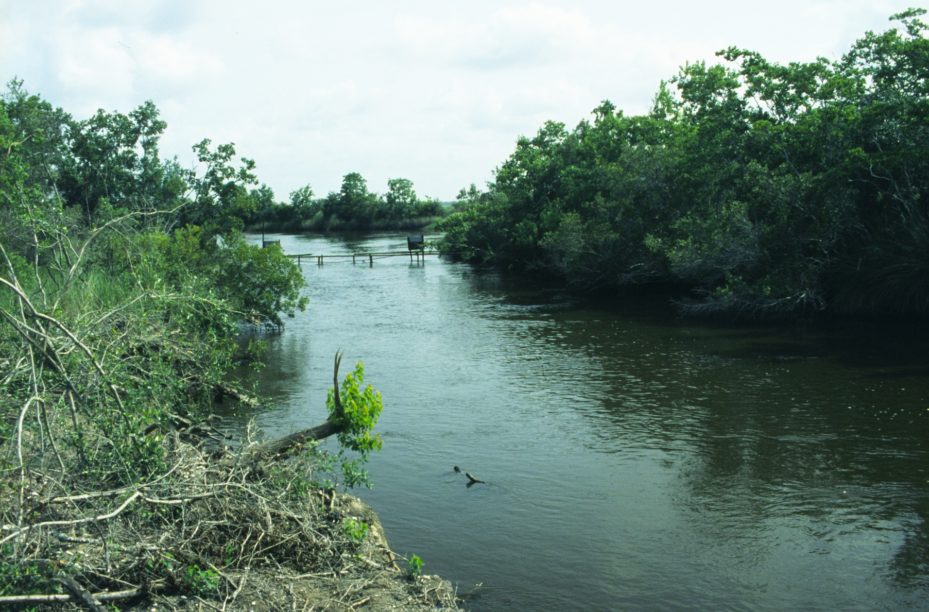Climate change is increasing the risks of weather-related disasters for households and communities across the United States, from intensifying storms and wildfires to rising sea levels. Existing tools to finance equitable recovery from these events, as well as risk reduction, are not adequately suited to the magnitude of the problem.

Federal disaster aid is often limited and delayed, making it an inadequate source for recovery funds. Many households and communities have insufficient savings to pay for needed rebuilding on their own. Insurance can play a critical role in financial resilience, but there persists a large disaster insurance gap in the U.S. and worldwide. Too often, those who need insurance the most are the least able to afford it. There are also barriers to using insurance to relocate out of high-risk areas or provide funding for increasingly necessary risk reduction measures. Many ecosystems can provide protection against certain risks, but conservation is often under-funded, as is restoration. Innovative risk transfer solutions and well-designed public-private partnerships have the possibility of filling many of these gaps.
Improving the financial recovery from coastal disasters: innovative risk transfer instruments
Project Overview (2019-2022)
 Overcoming the current deficiencies in financial recovery from coastal extreme events requires working at the intersection of the public and private sector. It will require the development of evidence-based, public-private partnerships and public policies. With funding from a National Science Foundation (NSF) grant, this project explored four novel insurance solutions to improve the financial resiliency of coastal communities to changing climate risks:
Overcoming the current deficiencies in financial recovery from coastal extreme events requires working at the intersection of the public and private sector. It will require the development of evidence-based, public-private partnerships and public policies. With funding from a National Science Foundation (NSF) grant, this project explored four novel insurance solutions to improve the financial resiliency of coastal communities to changing climate risks:
- Parametric micro-insurance for low-income families
- Insuring coastal ecosystems against destruction by the very events for which they provide community resilience
- Parametric products for unmet community fiscal needs
- Homeowners policies that would pay for coastal retreat in the event of total property loss from storm or flood damage
While there has been discussion among academics and practitioners about such innovations, none are in operation in the U.S., and there are limited examples of a subset of these outside the U.S. This project undertook the research and collaborative engagement necessary to design implementable, scalable, sustainable, and economically viable programs for these four proposed insurance solutions.
This project was launched with a workshop in December, 2019. Findings from the workshop are available in a workshop report. The report offers a research and policy agenda for how risk transfer can address four adaptation priorities: (1) improving the recovery of low-income families, (2) protecting coastal ecosystems, (3) meeting community fiscal needs post-disaster, and (4) increasing investments in risk reduction. Subsequent research findings from this grant are available in the resources section at the bottom of this page. This project concluded in 2022.
Closing the Disaster Insurance Gap for Low Income Households
Project Overview (2020-2022)
 Low income families currently struggle to financially recover post-disaster. In the United States, as well as other countries, there is a disaster insurance gap among this group, and other sources of recovery funds are typically insufficient and delayed. One promising financial solution is a public-private partnership for a parametric micro-insurance policy. Such a product could be flexible and tailored to specific needs.
Low income families currently struggle to financially recover post-disaster. In the United States, as well as other countries, there is a disaster insurance gap among this group, and other sources of recovery funds are typically insufficient and delayed. One promising financial solution is a public-private partnership for a parametric micro-insurance policy. Such a product could be flexible and tailored to specific needs.
With funding from a Lloyd’s Tercentenary Research Foundation (LTRF) grant, the objective of this project is to design an implementable, scalable, sustainable, and economically viable parametric micro-insurance program for low-income families in the United States, coupled to disaster mitigation efforts, and implemented through a public-private partnership. In addition to designing a viable program, this project seeks to identify potential local partners and firms interested in piloting the concept.
The first phase of this project was a proof of concept report for implementing microinsurance in the U.S., with spillover lessons for other highly developed countries. Most examples of microinsurance policies come from developing countries, where such products have been piloted and implemented for the last couple decades. This research has now been published in a paper as well.
The second phase of this project will produce a regulatory framework for microinsurance for disasters. Additionally, the team has deployed surveys on financial recovery from disasters. The first of these findings are available in a report entitled: The Challenge of Financial Recovery from Disasters: The Case of Florida Homeowners after Hurricane Michael.

Advisory Board and Project Partners
One major barrier to implementing transformative change for climate resilience is that research often fails to consider context and institutional realities. This project seeks to overcome this challenge with the help of an advisory board, which includes representatives from the public and private sector. The Advisory Board also includes representatives from three locations that have agreed to explore how these concepts could work in their locations: Puerto Rico, New York City, and California. These three diverse places, all facing serious disaster risks, such as floods and wildfires, and all struggling with equitable resilience and how to ensure financial recovery for residents, provide complementary cases for exploring these innovative policies.


